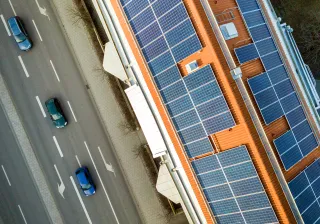Decisions about the built environment have a wide-ranging and long-term impact on human well-being. Cities are constantly being developed and repaired, and related decisions can focus on short-term benefits or secure habitable living conditions for future generations, in line with environmental carrying capacity. Social sustainability has been somewhat shadowed by economic and ecological sustainability despite all these aspects of sustainability being closely linked. Reconciling them in business activities may also prove challenging.
Some challenges related to the indicators and assessment frameworks of social sustainability have been their weak link to companies’ strategic objectives, the use of cumbersome assessment methods and a lack of contextual data. We are still far from being able to prioritise one factor of social sustainability over another or comparing said factors with economic and ecological factors.
In the Sustainable3 Futures project, we have tackled the challenge of improving the assessment of social sustainability and developed models that will help integrate the social sustainability of the urban environments during their use in the decision-making of the built environment and related solutions. We also need suitable tools for transferring sustainability thinking to planning, construction, maintenance and innovation processes, which will generate impact through outputs and results.
What is social sustainability in the use of the built environment?
In our research, we examine social sustainability from various perspectives. The concepts of this field of research are not well-established, although there are some congruent elements. In our project, we used scientific sources, case materials and interviews to define seven focus areas that help us understand the different elements of social sustainability in the context of the built environment.
Accessibility reflects the extent to which different user groups can use a solution or environment. Health and safety address the effects of a solution or environment on health and safety under different conditions throughout its lifecycle, not forgetting the safety experienced by users.
Usability ensures that a solution works efficiently for its specific intended purpose. One element of decision-making, stakeholder commitment and the sharing and development of competence is that planning and implementation is open so that users get the opportunity to have influence and hold the rights to their data. Shared spaces, resources and activities enable the realisation of communality and inclusion in a way that supports individuals’ wishes. The sustainability and resilience of built environment solutions guarantee them a lifecycle that is as long as possible. In addition, sustainability and resilience enable fulfilling the prerequisites for environmental and human well-being in the future. To achieve the desired future, we also have to invest in sustainable growth and development over the long term.
Framework to monitor the achievement of objectives
The above-mentioned focus areas include more than 300 identified indicators. We are currently working on a framework of indicators to help different actors in the value chain of the built environment to integrate social sustainability and its assessment into their business activities. Our research is ongoing and the focus areas will be further specified after testing the framework.
In this project, we are focusing on the experienced social sustainability during the use of a space, which means that otherwise important matters affecting overall sustainability, such as raw materials, manufacturing and impacts on different stakeholders, are excluded from the framework.
The framework will help to assess solutions and the built environment at different levels (for example by each solution, city block or region), which enables the steering and monitoring of the desired impacts of social sustainability.
Sustainable3 Futures is a two-year joint research project that is developing a data-based framework for assessing social sustainability and bringing visibility to the long-term value of solutions that promote sustainability. The project studies how the model can be used and applied in the context of urban living and the built environment. The project is funded by Business Finland, VTT Technical Research Centre of Finland, University of Turku and involves the organisations of KONE, NCC, Vaasa, Oulu, Smart Village Builders and Kotikatu365.






